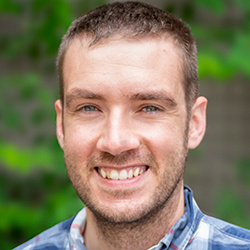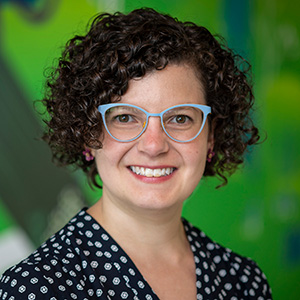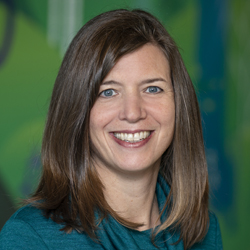Celiac Disease Program
Contact the Celiac Disease Program
What is celiac disease?
Celiac disease is an autoimmune disorder that causes damage in the small intestine. People with celiac disease respond differently to gluten, a protein found in wheat, rye and barley.
-
What happens when people with celiac disease eat gluten?
When people with celiac disease eat gluten, it causes an immune system reaction. The body starts to attack and damage the villi (very small, finger-like projections) in the small intestine. Without villi, the body cannot absorb vitamins, minerals and other nutrients from food.
Celiac disease is an ongoing (chronic) illness. People who have celiac disease cannot be treated with medicine or surgery. But their symptoms can be relieved and their bodies can heal if they stop eating foods that contain gluten. It takes effort to adopt this diet, but it is highly effective at managing celiac disease.
Symptoms of Celiac Disease
Not everyone with celiac disease has symptoms. People who do have symptoms often confuse them with other intestinal disorders, such as irritable bowel syndrome or lactose intolerance.
-
Possible symptoms of celiac disease
- Diarrhea
- Stomach pain and bloating
- Constipation
- Weight loss
- Vomiting
- Short stature/failure to gain weight (failure to thrive)
- Delayed growth and puberty
- Low red blood cell counts (anemia)
- Feeling tired
- Skin rashes (known as dermatitis herpetiformis) and mouth sores
- Problems with the enamel of the permanent teeth
- Feeling irritable
Sometimes people do not have symptoms.
-
Causes of celiac disease
We do not yet know exactly what causes celiac disease. We do know that people can inherit the risk to develop the disease from a parent. People with a first-degree relative (such as a parent, child or sibling) with celiac disease have an increased risk of developing the condition.
Although having this gene makes someone more likely to get celiac disease, some people with the gene never develop it. Other genes, as well as factors such as toxins, infections or stress, may also play a role. Celiac disease affects people of all heritages and races. We estimate that 1 in 100 people in the United States have celiac disease. Many may not know or may not have symptoms.
Although we don’t yet know why celiac disease starts, we do know how to manage this illness so your child can heal and thrive.
-
Risks and complications of celiac disease
Children with celiac disease don’t get the nutrients they need. Because of this, they may not grow properly, may be tired or may lose weight. If celiac disease is not found in a child and treated, it can lead to serious, long-term health problems, including:
- Lack of iron, which can lead to low red blood cell counts (anemia). This means less oxygen gets to the cells.
- Early development of brittle bones (osteoporosis) or low bone density (osteopenia).
- Short stature.
- Teeth enamel defects.
- Thyroid problems.
- Arthritis.
- Inability to get pregnant (infertility) and miscarriage.
- Lactose intolerance (cannot digest the natural sugar in milk).
- Inability to absorb enough vitamins and minerals.
- Cancers in the gastrointestinal system.
- Conditions of the brain and nervous system (such as migraines).
When people develop celiac disease at a later age, there is a greater risk of developing other autoimmune conditions and related health problems. Although some people do not have symptoms, they may still have the health conditions and risks listed earlier.
Diagnosing Celiac Disease
Celiac disease symptoms often look like other digestive conditions. Only a medical provider can evaluate and diagnose your child with celiac disease.
Your child should not change their diet before getting tested or seeing a doctor. Removing gluten from your child’s diet before a medical diagnosis can give test results that are not accurate.
Doctors diagnosis celiac disease by performing the following tests.
-
Doing blood work
If the provider thinks your child may have celiac disease, they will order a blood test. The test checks if your child shows high levels of antibodies on a gluten-containing diet, suggesting celiac disease.
-
Doing an endoscopy
If the results of the blood test show that your child has a high level of antibodies to other proteins in the intestinal lining, the provider may recommend testing a tissue sample of the small intestine. This test, called a biopsy, accurately determines if your child has celiac disease. The procedure used to get this sample is called an endoscopy.
Treating Celiac Disease
Celiac disease can be treated – but not cured – by following a lifelong gluten-free diet (PDF). At Seattle Children’s, you and your child meet with a dietitian who specializes in working with children. Your child will learn about all the great foods they can eat and how to adapt to new ways of eating.
Our dietitians create diet plans to fit your child and family. You and your child learn:
- How to make healthy gluten-free food choices
- How to follow a gluten-free diet and still enjoy favorite foods and traditions and participate in outside activities
- How to avoid accidental gluten exposure through cross-contamination
By eating gluten-free, your child can reverse nutritional deficits (not getting the vitamins and minerals the body needs to be healthy) in their diet and heal their small intestine.
Celiac Disease Program at Seattle Children’s
Our Celiac Disease Program is dedicated to helping children with celiac disease thrive and enjoy healthy, symptom-free lives.
Whether your child is newly diagnosed or has been living with celiac disease for many years, our caregivers are here to support their move to a gluten-free diet and wellness. Our first priority is to make an accurate diagnosis. From there, we offer support and expertise.
-
Support for your child and family
Celiac disease is fully treatable with a gluten-free diet. We realize this isn’t a quick fix and that support from other families who know what you are going through can make a big difference. The Celiac Disease Program hosts a celiac disease support group 4 times a year at the hospital campus in Seattle.
We welcome all patients, parents, caregivers and siblings affected by celiac disease.
Please email us to be added to the distribution list or to register.
-
Celiac clinics twice a month
A child who is newly diagnosed with celiac disease can be seen in our celiac clinic within about 2 weeks. At these clinics, you and your child can attend appointments with doctors, dietitians, nurse practitioners and social workers. We hold half-day clinics twice a month – once at Seattle Children’s hospital campus in Seattle and once at Seattle Children’s Bellevue Clinic and Surgery Center.
Appointments with individual doctors, nurse practitioners and dietitians are also available outside these formal clinic times for families who need additional options.
We recommend that every child with celiac disease be seen once a year by your provider.
-
Teaching sessions
A highlight of our twice-monthly clinics is the “new diagnosis” teaching sessions for you, your child and your family. Doctors and nurse practitioners present basic information that you need to know about celiac disease. Dietitians talk about the importance of good nutrition. They also give practical advice on how to make a gluten-free diet work at home, at school and as part of your child’s social and religious life.
Food plays a big role in our lives, and we know that making changes in the way your child and family eat can be challenging. We help you deal with daily meal planning as well as those tricky situations, such as what to do if your child is at a birthday party where pizza or hamburgers are served.
-
Educating the wider community about celiac disease
We want to be a resource for primary care doctors and pediatricians. We are available to give talks to groups of caregivers and to schools that want to learn more about celiac disease, the importance of treating it and ways children who have the disease can be supported. If you are interested in hosting an educational talk, contact our program manager.
Untreated celiac disease can prevent children from growing properly and cause weight loss. Not treating the disease can also make a child more prone to other illnesses, such as thyroid disease. This, in addition to the pain and discomfort it causes, is why we believe it is so important to diagnose and treat childhood celiac disease.
-
The experts you need are here
Our Celiac Disease Program is the first formal celiac disease program in the Northwest. We are dedicated to helping children with celiac disease enjoy healthy, symptom-free lives. In addition to medical care and dietary support, we offer a celiac disease support group.
Team
Dietitians
-
Tran A Hang, MS, RDN, CD, CDE
-
Rachel E Kay, RDMS, RDN, CSP, CD, CNSC
-
Melissa J Mortensen, MS, RDN, CD, CSP, CCTD
-
Elena Ralph, MPH, RDN, CD
-
Erin Elizabeth Walsh, MS, RDN, CD, CSP
Contact Us
To make an appointment with Seattle Children’s Celiac Disease Program, start by asking your child’s primary care doctor or another specialist for a referral. We encourage you to work with your primary care provider or family physician when coming to Seattle Children’s specialists. If you have a referral or would like a second opinion or more information, call 206-987-2521.
How to Refer a Patient
Providers, see how to refer a patient.




